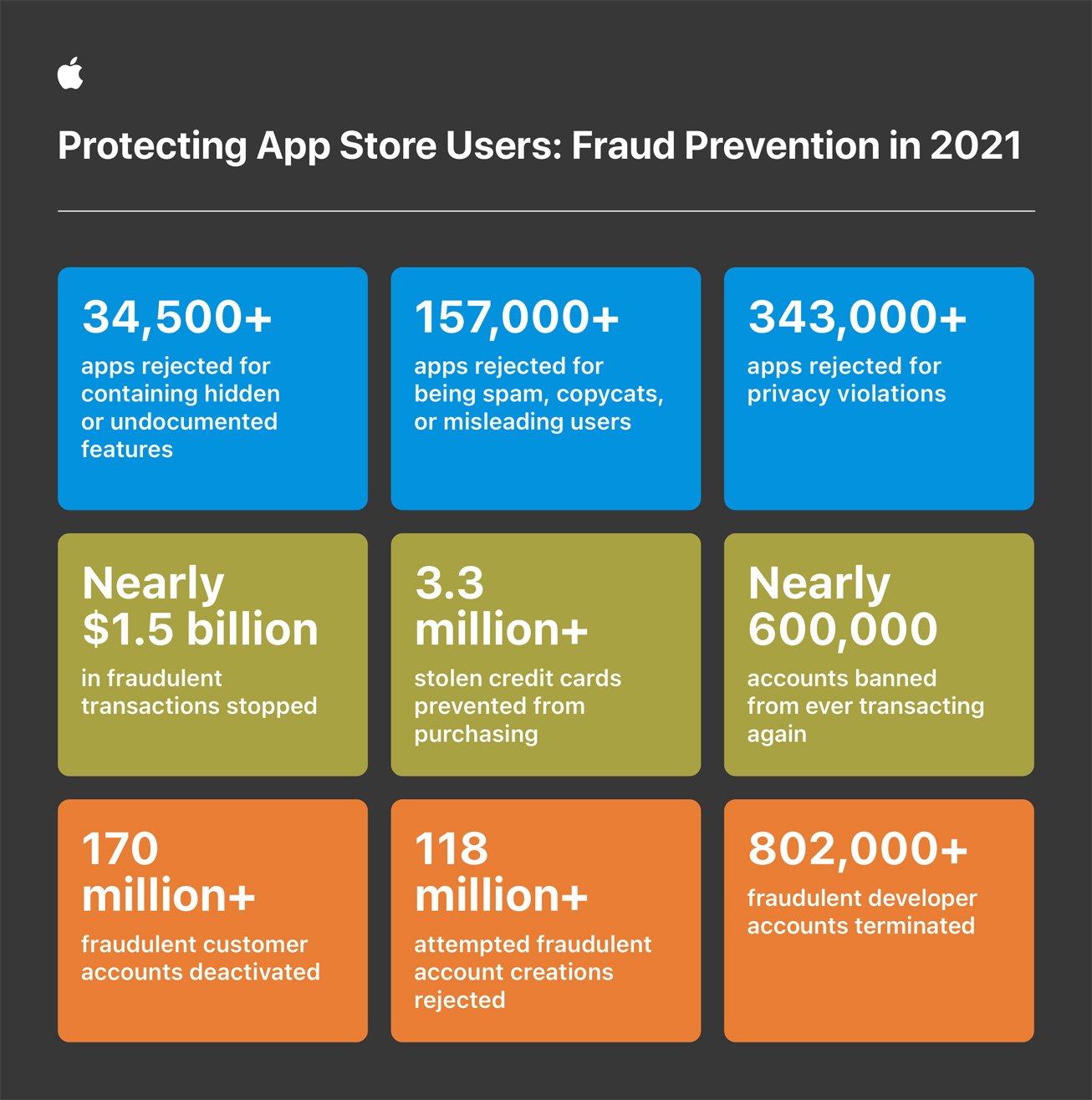Apple says that its App Store safety mechanisms stopped nearly $1.5 billion in potentially fraudulent transactions and kept 1.6 million "problematic apps" away from customers.
The report, released on Wednesday, is a followup to a previous inaugural fraud prevention analysis that the company published in 2021.
According to the two reports, Apple stopped the same amount of fraudulent transactions — $1.5 billion — in 2020 and 2021. It appears that Apple has successfully clamped down on problematic apps, since it blocked 1 million in 2020 and 1.6 million in 2021.
Throughout 2021, Apple said it detected and blocked more than 94 million fake reviews and 170 million ratings for "failing to meet moderation status." It also removed another 610,000 reviews that were detected through customer reports or human evaluation.
Apple also terminated 802,000 developer accounts for fraudulent activity and rejected 153,000 over similar concerns. It also blocked 63,500 illegitimate apps on "pirate storefronts."
As a result of its human review and automated mechanisms, the iPhone maker also stopped more than 3.3 million stolen credit cares from being used to make potentially fraudulent transactions. It also banned nearly 600,000 accounts from making transactions again.
"Apple's efforts to prevent and reduce fraud on the App Store require continuous monitoring and vigilance across multiple teams," Apple wrote. "From App Review to Discovery Fraud, Apple's ongoing commitment to protect users from fraudulent app activity demonstrates once again why independent, respected security experts have said the App Store is the safest place to find and download apps."
In addition to the updated numbers, the report again highlights the kind of protections that Apple uses to protect App Store customers. That includes App Store Review, payment and credit card protections, and anti-account fraud mechanisms.
 Mike Peterson
Mike Peterson









 Wesley Hilliard
Wesley Hilliard
 Malcolm Owen
Malcolm Owen
 Andrew Orr
Andrew Orr
 William Gallagher
William Gallagher
 Sponsored Content
Sponsored Content
 Christine McKee
Christine McKee

 Thomas Sibilly
Thomas Sibilly







15 Comments
So, once Apple is forced to open the iPhone to alternate app stores will Apple be able to get rid of any fraudulent apps from these (fraudulent) app stores? Probably not.
What is scary is that one does not hear anything about how Android stops such fraud. Is it because people know's that Android's wild-west attitude invites this kind of fraud and is accepted as the status-quo?